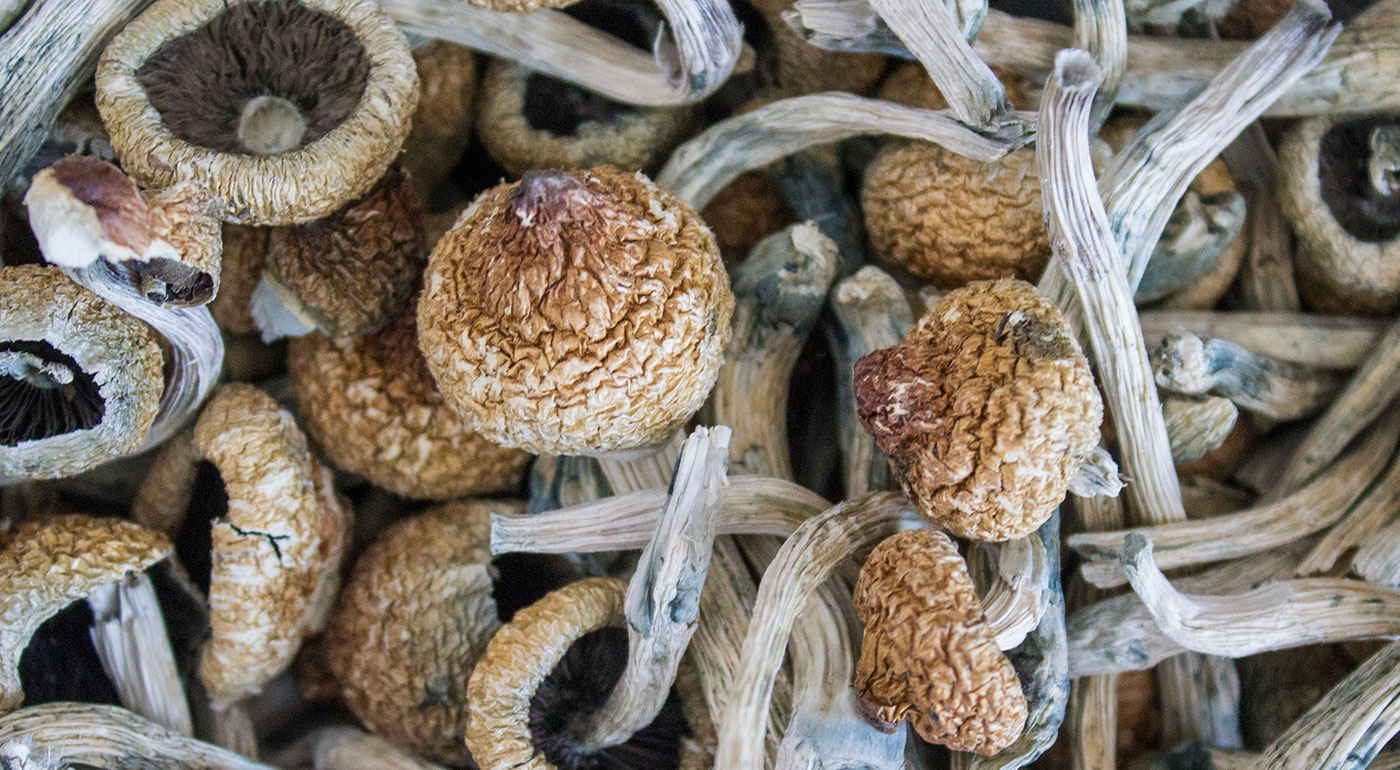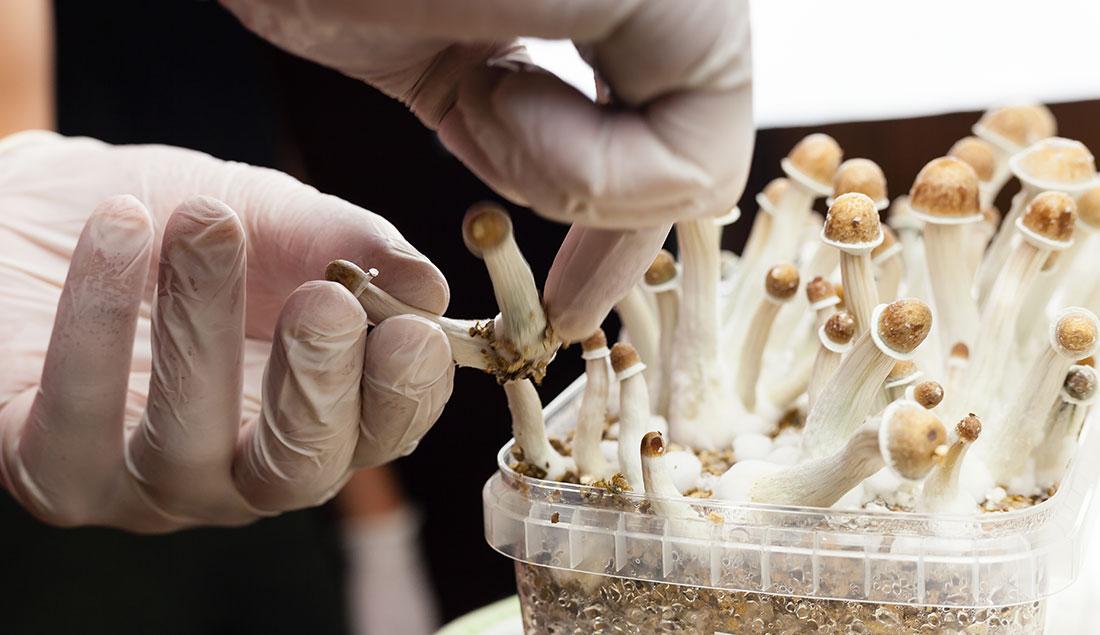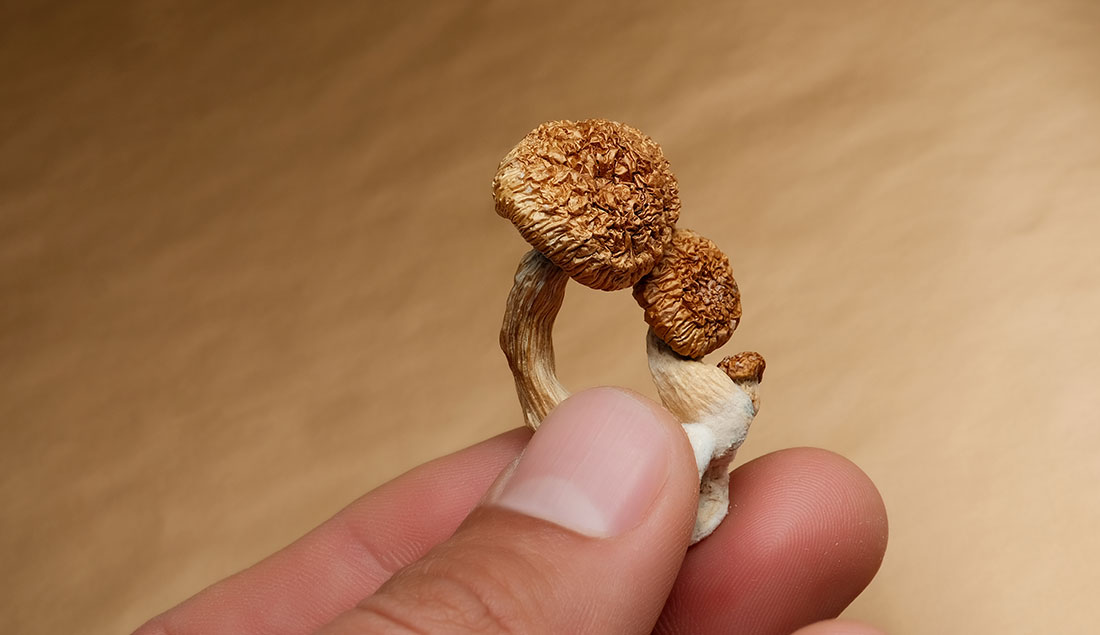No products in the cart.

The Diverse World of Magic Mushrooms in British Columbia
Janis Hughes was slumped in front of her big-screen TV, absorbed in a Netflix show, hoping to unwind and erase the memories of her day, the previous one, and the one before that. But it wasn't a simple task, especially when she realized that she was slowly succumbing to a deadly disease.
Hughes had been battling breast cancer for over a decade, and it kept returning with a vengeance, like a toxic relationship that you can’t seem to escape. In 2011, she underwent a lumpectomy, only for the cancer to resurface in 2018, spreading to her lungs and bones. And then, the final blow: the grim diagnosis of being in the terminal stage. This announcement closed the door on everything she had ever known.
“I became very anxious,” said Hughes, 66.
She had gone on a dream vacation to Tofino arranged by her loved ones, but even that could not ease her worries. Later, while watching the documentary Fantastic Fungi on Netflix, she had hoped to get lost in its stunning visuals and time-lapse photography, only to be suddenly taken aback when the focus shifted to terminal patients using psilocybes to ease their end-of-life anxiety.
She realized that this might be just what she needed to spend her final days fearlessly with her loved ones on the planet she cherished. Psychedelics, including magic mushrooms, are currently in the spotlight, with clinical trials highlighting their potential to treat treatment-resistant depression, PTSD, and end-of-life anxiety. Even Prince Harry has revealed that he used them to cope with his grief.

Michael Pollan’s book How to Change Your Mind discusses his experience with psilocybin and how it dissolved all his past desires, fears, and defences. There are over 200 varieties of naturally occurring mushrooms in the psylocibe family, used for medical and spiritual purposes long before they were discovered by modern science or used for psychedelic experiences by the counter-culture.
Wild magic mushrooms are easy to find and forage in British Columbia. Prior to 1982, when the Supreme Court of Canada declared them illegal, young Canadians would often embark on trips to search for them in fields, as reported at the time. Psilocybin, the psychoactive component in psilocybes, is regarded as physiologically safe and does not lead to addiction or dependence, according to the U.S. National Institutes of Health.
In Canada, psilocybin is categorized under the Controlled Drugs and Substances Act, and it was not decriminalized alongside other illegal substances on January 31, 2023. According to RCMP Staff Sgt. Kris Clark, the possession and trafficking of psilocybin, including in dispensaries, is still a criminal offence, although the Vancouver Police Department has stated that it is not a priority for them as they concentrate on organized crime and the opioid epidemic.
Psilocybes were studied for medicinal purposes in the 1950s and 1960s, but psychedelics fell out of favour in subsequent years, partly due to their increasing association with recreational use among the counterculture. Nevertheless, in recent years, new research has emerged, indicating their potential for treating various psychological disorders and addictions, such as alcoholism.
The Ministry of Mental Health and Addictions in B.C. stated that it is collaborating with regional health authorities, Indigenous groups, and others inside and outside the government to explore the emerging use of psychedelic drugs in the province. Vancouver is home to numerous medical centers offering targeted psilocybin therapies in a clinical setting.
Numinus Bioscience, a B.C. startup, possesses a license from Health Canada that enables them to hold, produce, assemble, sell, export, and distribute different psychedelic compounds, including psilocybin, for medical purposes. They operate a patient clinic on Commercial Drive in Vancouver and a research facility in Nanaimo.
B.C. has also become a destination for those seeking more esoteric experiences, with practitioners such as The Journeymen Collective providing bespoke spiritual experiences built around psilocybin under the guidance of “contemporary shamans.” Julian Somers, an SFU professor and expert in public policies related to mental health and addiction, is apprehensive about the proliferation of retail storefronts selling psychedelics in Vancouver and the use of psychedelics “in any form of treatment.”
Magic Mushrooms May Not Be Simple,
But They Work
Australia and the U.S. have approved medicines containing psilocybin and officials are fast-tracking MDMA and psilocybin for approval. In Canada, however, patients still struggle to access psilocybin treatment. The federal government has opened up compassionate access to psilocybin treatments, but patients must have a physician recommend them. Patients have faced difficulty finding a supportive physician and must provide credible evidence from medical literature. Some patients have gone underground for psilocybin treatment. A plaintiff is challenging the federal government in a landmark Charter case. Health Canada has approved access for almost 100 patients, but the waiting time varies, and approval is only for the synthetic form of the drug.
TheraPsil, a non-profit, is applying for funding to run a clinical trial for 200 patients in B.C. using natural and synthetic versions of the drug.
Numinus in Vancouver has been granted access approval to treat several patients with a synthetic version of psilocybin. They are working on developing a natural tea with a standardized amount of psilocybin extract at its Nanaimo lab. Patients undergo screening and receive therapy in a curated environment with trained therapists and post-treatment followup.
“People are opening their psyche. I use the analogy of an operating room. If you go in for an operation, you need to have preoperative assessments, specialized people with specialized training, post-op recovery. A lot is necessary for that operation to be safe. The same goes for psychedelic-assisted therapy.
“People think, oh now everyone’s just going to take psilocybin and feel better. It’s not the case, it’s very nuanced.
Are Magic Mushrooms
On-Track to Legalization?
Despite warnings from experts about the lack of therapeutic benefits of self-medicating with psilocybin, Vancouver’s Coca Leaf Café on Hastings Street is thriving. The café offers microdoses of psilocybin through a vending machine or as an addition to lattes, while larger doses for recreational use can be selected with the help of a staff member.
Proprietor Dana Larsen is well-versed in the effects of various strains, with some providing laughter-inducing joy and others having a reputation for therapeutic benefits. Customers have reported epiphanies and insights, as well as emotions such as forgiveness, peace, and acceptance. Microdosing is also available, with some studies suggesting that it may increase daily happiness and reduce depressive symptoms.
Larsen works with trusted, local suppliers and caters to a diverse clientele, including senior citizens, young adults, people with chronic pain, and tourists from around the world. While he does not expect the market for psilocybin to be as extensive as that for cannabis, he believes that it will follow a similar path to legalization. The City of Vancouver, however, has taken issue with the dispensary’s business licence and will be facing off against the café in court in May. The City argues that the licence to run a café does not allow for the sale of mushrooms or other psychedelics, and the location at 651 East Hastings St is currently under investigation and enforcement.

Enhancing the Psychedelic
Journey with Guidance
Gary Logan and Robert Grover, also known as The Journeymen Collective, provide high-end magic mushroom experiences in British Columbia’s wine country. The location of their centre is kept secret and they only work with clients seeking personal growth, such as CEOs, entrepreneurs, executives, and professionals who are experiencing minor depression, anxiety, or a sense that they haven’t discovered their full potential.
The four-day program includes two psilocybin ceremonies and two integration days, with follow-up coaching to help participants apply the insights gained into their personal or business lives. The Journeymen Collective emphasizes the importance of respect for the “medicine” and inner work, with guidance from the shamans as key to achieving transformation. Although their setting is luxurious, participants are there for serious inner work.
Psychedelics, including magic mushrooms, are currently being explored for their potential to treat treatment-resistant depression, PTSD, and end-of-life anxiety. However, psilocybin, the psychoactive component in psilocybes, is still categorized as a controlled substance under Canada’s Controlled Drugs and Substances Act, and it was not decriminalized alongside other illegal substances on January 31, 2023. Even so, Canada has opened up compassionate access to psilocybin treatments for patients with terminal illnesses. While the potential of psychedelics to treat various psychological disorders and addictions is being explored, there is a need for more research in the area.

